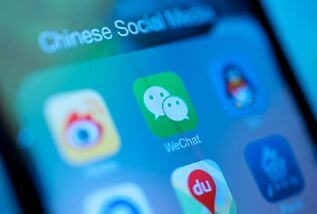正文
报告显示 超九成手机APP在获取用户隐私信息
Over 90% of mobile apps gained permission to access users' private information in the first half of 2018, according to a report recently released by Tencent's Research Center on Society and the Data Center of China Internet (DCCI).
腾讯社会研究中心和DCCI互联网数据研究中心近日发布的一份报告显示,2018年上半年,超9成手机应用获取用户隐私信息权限。
Statistics indicate that about 99.9% of Android apps obtained private information from their users in the first six months of this year. The figure for iOS apps also rose dramatically from 69.3% in the first half of 2017 to 93.8%.
数据显示,今年上半年,约99.9%的安卓应用获取用户隐私信息,iOS应用的这一比例也从去年上半年的69.3%激增至93.8%。
Of them, game apps saw the biggest increase in gaining access to users' private data, from 43.1% in the second half of last year to 88.9% in the first half of 2018.
其中,游戏类应用获取用户隐私数据权限的比例增幅最大,由2017年下半年的43.1%增至2018年上半年的88.9%。

Location information was required by 89.3% of apps in the first half of 2017, and the figure saw an increase to 95.9% in the first six months of this year, said Hu Yanping, founder of DCCI, adding that apps requiring access to users' contact data also climbed from 43.7% to 61.2% during the same period.
DCCI互联网数据研究中心创始人胡延平表示,要求读取位置信息的应用占比由2017上半年的89.3%增至2018年上半年的95.9%,而同期要求获取用户联系人数据权限的应用占比也从43.7%增长至61.2%。
Although relevant laws and regulations have been introduced in China, many apps are still suspected of overusing their authorization to collect user data, said Zhou Ye, senior mobile security researcher at 360 Vulpecker Team.
360威派克团队高级移动安全研究员周烨表示,尽管国家相关法律法规已经出台,但许多应用仍有滥用权限、收集用户数据的嫌疑。
Huang Xiaolin, a director of Tencent, also stressed that internet companies should self-discipline when it comes to the collection of information, usage of information and notification to the users.
腾讯董事黄晓林也强调,互联网公司在收集信息、使用信息和通知用户时应该自律。
- 上一篇

- 下一篇



 手机网站
手机网站